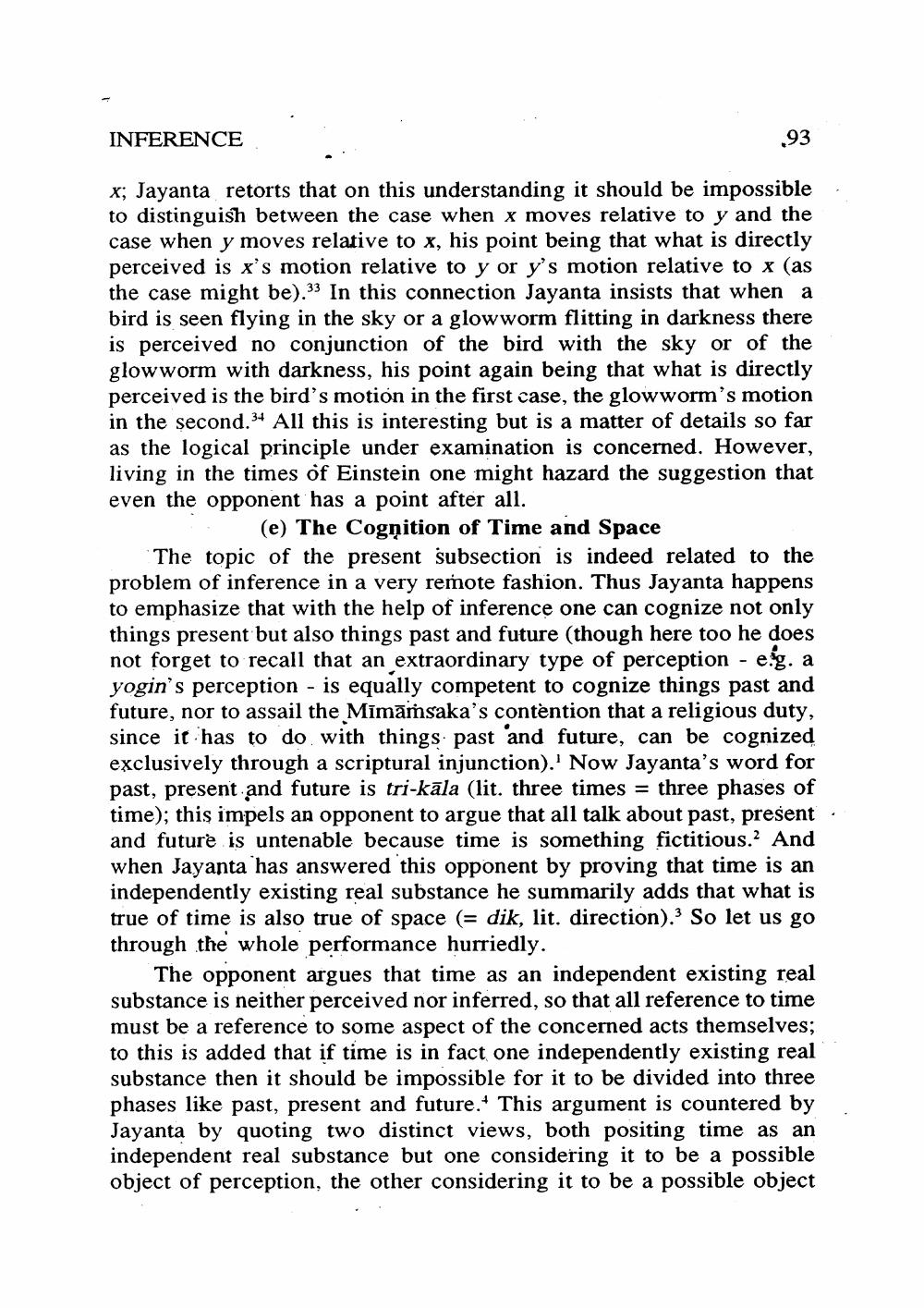________________
INFERENCE
,93
x; Jayanta retorts that on this understanding it should be impossible to distinguish between the case when x moves relative to y and the case when y moves relative to x, his point being that what is directly perceived is x's motion relative to y or y's motion relative to x (as the case might be).33 In this connection Jayanta insists that when a bird is seen flying in the sky or a glowworm flitting in darkness there is perceived no conjunction of the bird with the sky or of the glowworm with darkness, his point again being that what is directly perceived is the bird's motion in the first case, the glowworm's motion in the second.34 All this is interesting but is a matter of details so far as the logical principle under examination is concerned. However, living in the times of Einstein one might hazard the suggestion that even the opponent has a point after all.
(e) The Cognition of Time and Space The topic of the present subsection is indeed related to the problem of inference in a very remote fashion. Thus Jayanta happens to emphasize that with the help of inference one can cognize not only things present but also things past and future (though here too he does not forget to recall that an extraordinary type of perception - eg. a yogin's perception - is equally competent to cognize things past and future, nor to assail the Mīmāṁsaka's contention that a religious duty, since it has to do with things past and future, can be cognized exclusively through a scriptural injunction).' Now Jayanta's word for past, present and future is tri-kāla (lit. three times = three phases of time); this impels an opponent to argue that all talk about past, present and future is untenable because time is something fictitious. And when Jayanta has answered this opponent by proving that time is an independently existing real substance he summarily adds that what is true of time is also true of space (= dik, lit. direction).' So let us go through the whole performance hurriedly.
The opponent argues that time as an independent existing real substance is neither perceived nor inferred, so that all reference to time must be a reference to some aspect of the concerned acts themselves; to this is added that if time is in fact one independently existing real substance then it should be impossible for it to be divided into three phases like past, present and future. This argument is countered by Jayanta by quoting two distinct views, both positing time as an independent real substance but one considering it to be a possible object of perception, the other considering it to be a possible object




